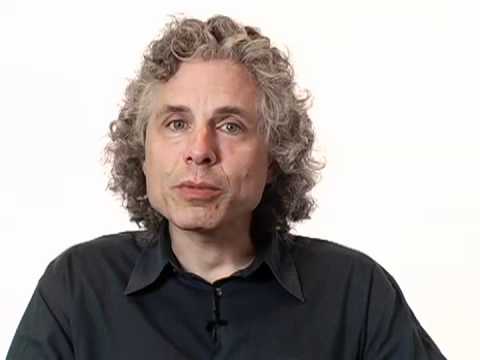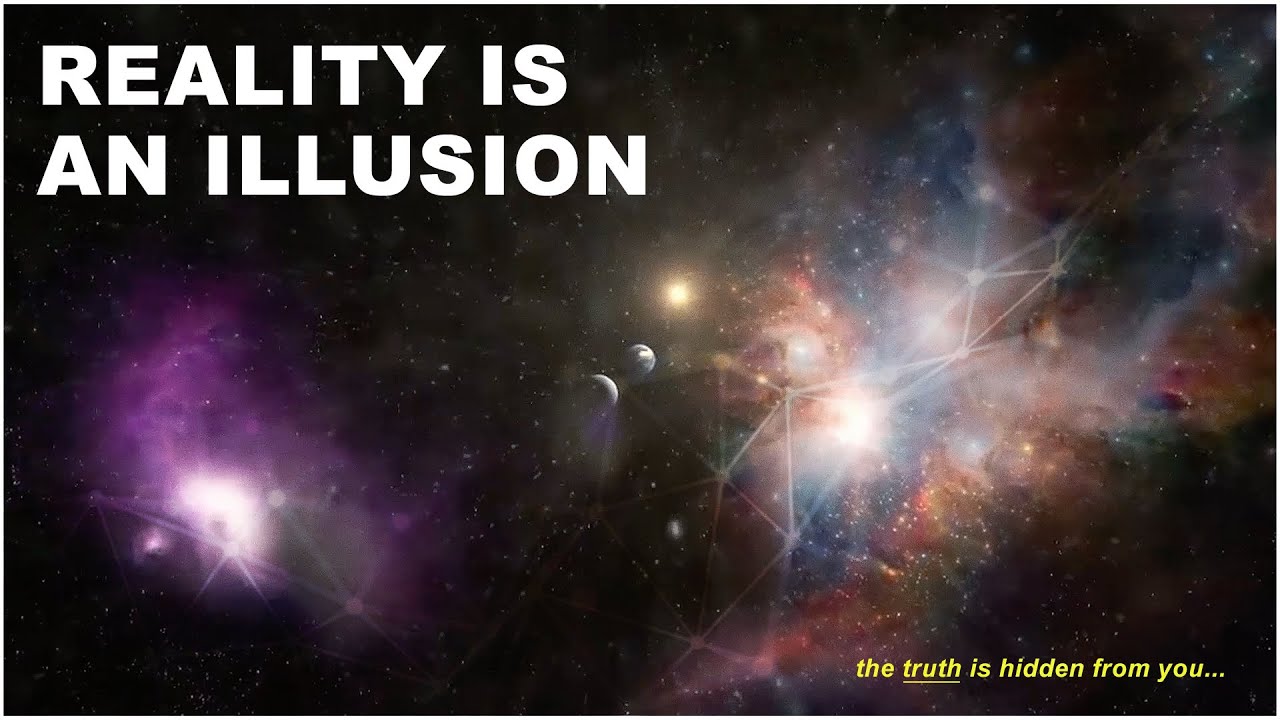Big Think
New videos DAILY: https://bigth.ink
Join Big Think Edge for exclusive video lessons from top thinkers and doers: https://bigth.ink/Edge
———————————————————————————-
Free will exists, but by no means is it a miracle.We use “free will” to describe the more complex processes by which behavior is selected in the brain. These neurological steps taken to make decisions respect all laws of physics.”Free will wouldn’t be worth having or extolling, in moral discussions, if it didn’t respond to expectations of reward, punishment, praise, blame,” Pinker says.
———————————————————————————-
STEVEN PINKER
Steven Pinker is an experimental psychologist who conducts research in visual cognition, psycholinguistics, and social relations. He grew up in Montreal and earned his BA from McGill and his PhD from Harvard. Currently Johnstone Professor of Psychology at Harvard, he has also taught at Stanford and MIT. He has won numerous prizes for his research, his teaching, and his nine books, including The Language Instinct, How the Mind Works, The Blank Slate, The Better Angels of Our Nature, The Sense of Style, and Enlightenment Now: The Case for Reason, Science, Humanism, and Progress.
———————————————————————————-
FOLLOW BIG THINK:
📰BigThink.com: https://bigth.ink
🧔Facebook: https://bigth.ink/facebook
🐦Twitter: https://bigth.ink/twitter
📸Instagram: https://bigth.ink/Instragram
📹YouTube: https://bigth.ink/youtube
✉ E-mail: info@bigthink.com
———————————————————————————-
TRANSCRIPT:
STEVEN PINKER: I do believe that there is such a thing as free will but by that I do not mean that there is some process that defies the laws of physical cause and effect. As my colleague Joshua Greene once put it, it is not the case that every time you make a decision a miracle occurs. So I don’t believe that. I believe that decisions are made by neurophysiological processes in the brain that respect all the laws of physics. On the other hand it is true that when I decide what to say next when I pick an item from a menu for dinner it’s not the same as when the doctor hits my kneecap with a hammer and my knee jerks. It’s just a different physiological process and one of them we use the word free will to characterize the more deliberative, slower, more complex process by which behavior is selected in the brain.
That process involves the aggregation of many diverse kinds of information – our memory, our goals, our current environment, our expectation of how other people will judge that action. Those are all information streams that affect that process. It’s not completely predictable in that there may be random or chaotic or nonlinear effects that mean that even if you put the same person in the same circumstance multiple times they won’t make the same choice every time. Identical twins who have almost identical upbringings, put them in the same chair, face them with the same choices. They may choose differently. Again, that’s not a miracle. That doesn’t mean that there is some ghost in the machine that is somehow pushing the neural impulses around. But it just means that the brain like other complex systems is subject to some degree of unpredictability. At the same time free will wouldn’t be worth having and certainly wouldn’t’ be worth extolling in world discussions if it didn’t respond to expectations of reward, punishment, praise, blame.
When we say that someone – we’re punishing or rewarding someone based on what they chose to do we do that in the hope that that person and other people who hear about what happens will factor in how their choices will be treated by others and therefore there’ll be more likely to do good things and less likely to do bad things in the expectation that if they choose beneficial actions better things will happen to them. So paradoxically one of the reasons that we want free will to exist is that it be determined by the consequences of those choices. And on average it does. People do obey the laws more often than not. They do things that curry favor more often than they bring proprium on their heads but not with 100 percent predictability. So that process is what we call free will. It’s different from many of the more reflexive and predictable behaviors that we can admit but it does not involve a miracle.
Source




"We are made of star stuff"
That was actually a very interesting point btw!
what is an "objective purpose"? Do you mean the purpose of being god's slave? No, thank you. Slavery is not nice, u know?
Nice strawman argument you ignoramus. The purpose of our life is to enjoy God thoroughly.What master would die on the cross to save his slaves? Please educate yourself.
Why are u angry with me? I just asked simple questions. Enjoy god? I dont enjoy any proclaimed skydaddy. Forcing me to do so would be very unpleasant for me, factually pushing me into a slave position. So this "objective purporse" is obviously only for those who enjoy that condition. But can this purpose then still be called "objective"?
What additional university degree would you suggest?
we're not forcing you, we're just offering this worldview up to and it's up to you what you believe. nobody is forcing anything. God loves you too much to make you go against your will and force you.
How can "god" loves me when at the same time threatens me with eternal torture?
Under the threat of an unpleasant condition we surely cannot speak of a free decision, dont u agree? We usually call this kind of behaviour blackmailing.
Evolution being a fact doesn´t rule out some kind of higher consciousness being behind it – one way or another – and that consciousness has been labeled "god" by mythic religions.
"It is clear by now…" that somehting we cannot REALLY prove "…should be outgrown" – is modern scientific arrogance.
Arrogance? I disagree that it's arrogance to say that if we have no proof for something, we have no rational basis for believing in that thing. I can only guess at your motive or basis for disproval of this statement, but no matter what it is, I think this statement still applies. We should out grow believing in anything we have no proof of. Any great achievement of man has only come from belief in that which we have proof for. Anything else is just mythical superstition and has held us back.
he's not torturing you, he's clearly laying out the options and it's up to you to decide what you want, very simple.
You mean "simple" as a mafia boss giving the option: "Do what I say or I shoot you in the knee?"
But maybe I am wrong informed. So non-believers dont go to hell?
why do you depict him as a mafia boss? that's a huge caricature right off the bat. imagine this one person kept on asking you if you would go out with them, and you keep pushing them off but they keep asking you. how would you feel if you were FORCED To go out with them? god doesn't force you against your will
can you really dont see the analogy? Both give two options while connection one of them with a threat ("hell", "shoot in the knee"), a situation like this we call blackmailing which is for sure some kind of will forcing.
But maybe I am wrong informed. Non-believers dont go to hell?
you wish!
I think what Pinker and Petr Svoboda are saying is indeed that "we" give purpose to "things" we put everything into a human perspective like: the brave lion, the sly fox or wise owl. we don't have to ask what the purpose of the universe is in this sense because we also don't ask this to a forest fire why did "it" burn my house down.. the question is maybe typical for a sentient being, it;s part of our human evolution
Very soothing voice
We are basically amoral beings with a desire to be good.
dio
I feel like I really do not belong in America. I am basically uneducated but I do love science, physics, astronomy and just learning basically and I am surrounded by people that are literally clueless to basic science. But who love to sit around and talk about things they know nothing about and talk about these subjects like they are experts in the field. I want to pack my children up and move to a country where superstition isn't privileged over intelligence.
3:15 to 3:42 is truth.
right. a man's brain, smaller than a rat's hair, in the universe, would understand it. aren't you a bit conceited?
Pinker argues rather dismissive against his own profession. As it should be obvious to a biologist that 'natural history' with all it's 'physical constants' can be interpreted towards a 'teleology' of producing organisms that not only reflect their environment within their physiology, but who will reflect upon their own impact on their environment via their intellect – gaining increasing degrees of liberty from nature in the process. While randomness is a factor in 'evolution' (a term which relates to developing something that had been constituted or seeded) – evolution can't be judged as random (with physical fitness and increasing adaptability as criteria of 'natural selection' ).
The accumulation of any knowledge would be meaningless , if universal collapse is the only fate of nature – like it is meaningless to gather books on a sinking ship. Knowledge is only meaningful if it can be applied by oneself or future generations – therefore the question has to be left for future generations , wether the reality man can naturally experience is ever a complete impression or fully fitting interpretation – the history of science strongly suggests otherwise (as in Heisenberg's 'uncertainty principle' – man realizes aspects of reality he can operate with, but it doesn't follow that he is aware of the 'complete picture' ).
The question 'what is man' is central to culture and a creature that drops out of the ignorant bliss of natural, instinctive behaviour and begins to wonder about it's purpose is therefore 'human'. Given that the purpose of nature was to produce a creature that gives purpose to itself, a natural purpose of mankind will never be found! Mankind will be what it's individual members negotiate with each other for it to be (with survival and reproduction as strong, natural factors of motivation).
One may sense titanic, cultural progress from the ice-age to our time, but the all-too linear progress of liberal 'modernization theory' ( itself a 'teleogy' of historical processes ) was questioned with the technological advance of thermonuclear weaponry , which occured precisely at the point of history when pseudo-feudal social values had been successfully promoted by 'fascism'. That ancient social ills have resurfaced on a significant scale, like 'piracy' and human trafficking, should not be ignored when liberal technocrats refer to a social-engineered global society – like a man-made, clanking god.
Man is not an 'enlightened' substitute for the allegedly wishful, divine myths of old, mankind can be experienced as the daily anxious, desperate 'act of balance' between the tragic bliss of animals and the life-giving, blessing serenity of gods.
Just as every human generation looks phylogenetically slightly more juvenile (towards a flat-faced 'neoteny'), the 'race of the future' with it's distinct traits will be inevitably constituted by the one's who can 'stomach each other' – which can be seen as the core of christian culture, at it's historical rise fulfilling a social function within the multi-ethnic Roman empire…
You the Man Mr Pinker!
For God so loved the world that he gave his one and only Son, that whoever believes in him shall not perish but have eternal life.